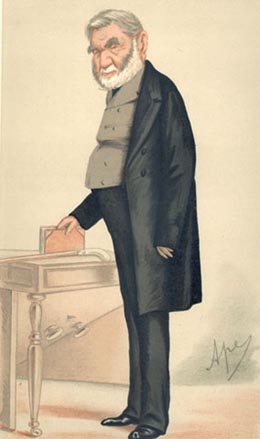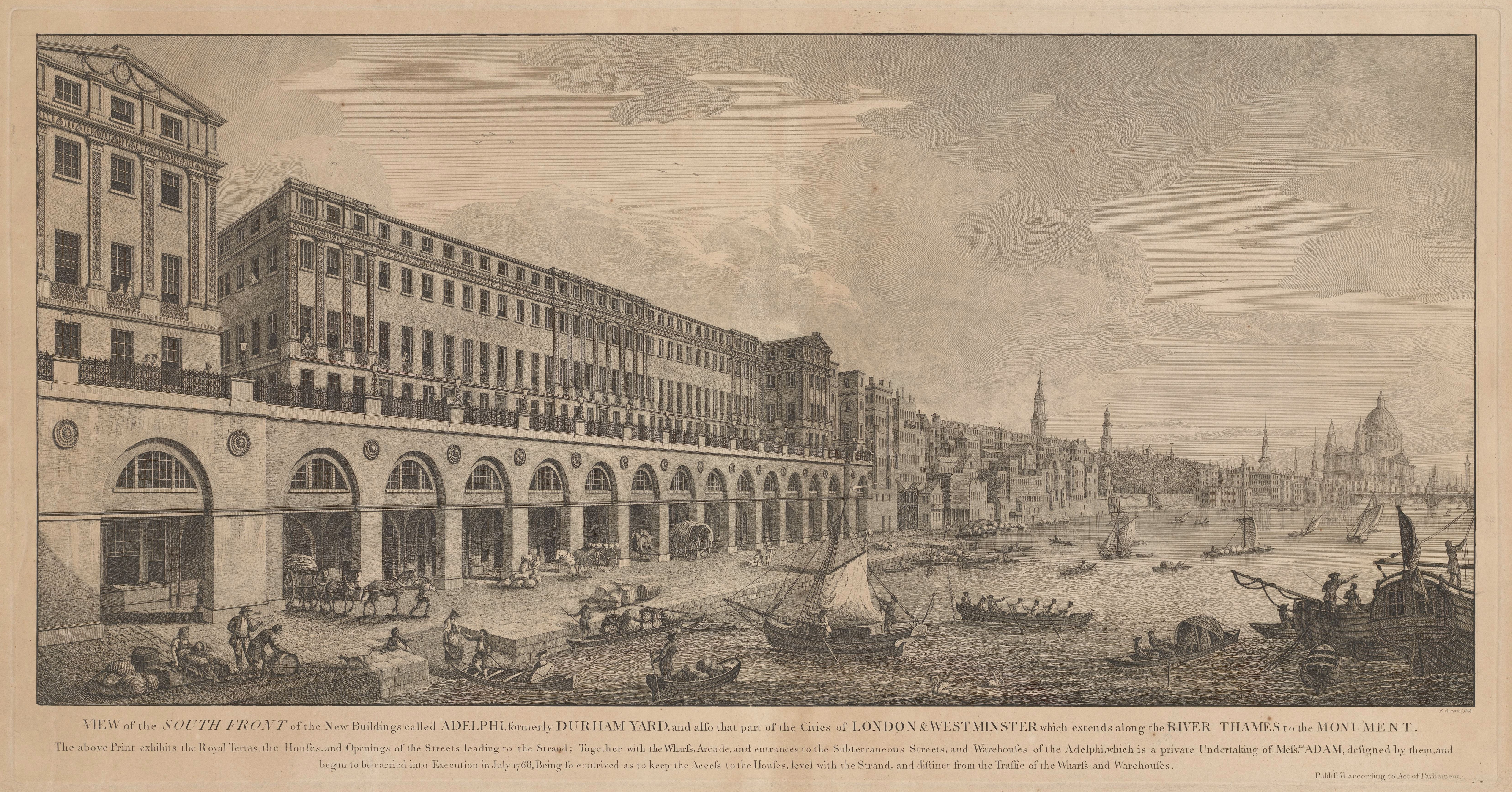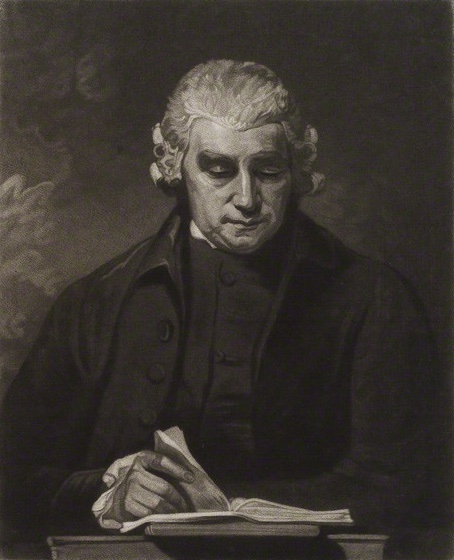|
Garrick Collection
The British Library's Garrick Collection is a collection of early printed editions of English drama amassed by the actor and playwright David Garrick. The collection was bequeathed to the British Museum in 1779. Collection overview Little evidence about the provenance of Garrick's collection is found in his archives and correspondence. However, internal evidence from the books themselves suggests that a large proportion of the printed plays came from the collections of Robert and Edward Harley, the 1st and 2nd Earls of Oxford, and the bookseller and writer, Robert Dodsley. Other notable previous owners of items in the Garrick Collection include Humfrey Dyson, Richard Smith (d. 1675), Lewis Theobald, Narcissus Luttrell, Richard Warner, Thomas Astle, and William Cartwright. The latter bequeathed his library to Dulwich College Library and there is some speculation that "Garrick had free access to the library of Dulwich College ... and pillaged without scruple or remorse". The coll ... [...More Info...] [...Related Items...] OR: [Wikipedia] [Google] [Baidu] |
British Library
The British Library is the national library of the United Kingdom and is one of the largest libraries in the world. It is estimated to contain between 170 and 200 million items from many countries. As a legal deposit library, the British Library receives copies of all books produced in the United Kingdom and Ireland, including a significant proportion of overseas titles distributed in the UK. The Library is a non-departmental public body sponsored by the Department for Digital, Culture, Media and Sport. The British Library is a major research library, with items in many languages and in many formats, both print and digital: books, manuscripts, journals, newspapers, magazines, sound and music recordings, videos, play-scripts, patents, databases, maps, stamps, prints, drawings. The Library's collections include around 14 million books, along with substantial holdings of manuscripts and items dating as far back as 2000 BC. The library maintains a programme for content acquis ... [...More Info...] [...Related Items...] OR: [Wikipedia] [Google] [Baidu] |
First Folio
''Mr. William Shakespeare's Comedies, Histories, & Tragedies'' is a collection of plays by William Shakespeare, commonly referred to by modern scholars as the First Folio, published in 1623, about seven years after Shakespeare's death. It is considered one of the most influential books ever published. Printed in folio format and containing 36 plays (see list of Shakespeare's plays), it was prepared by Shakespeare's colleagues John Heminges and Henry Condell. It was dedicated to the "incomparable pair of brethren" William Herbert, 3rd Earl of Pembroke and his brother Philip Herbert, Earl of Montgomery (later 4th Earl of Pembroke). Although 19 of Shakespeare's plays had been published in quarto before 1623, the First Folio is arguably the only reliable text for about 20 of the plays, and a valuable source text for many of those previously published. Eighteen of the plays in the First Folio, including '' The Tempest'', ''Twelfth Night'', and ''Measure for Measure'' among others, ... [...More Info...] [...Related Items...] OR: [Wikipedia] [Google] [Baidu] |
Ashley Library
The Ashley Library is a collection of original editions of English poets from the 17th century onwards, including their prose works as well as those in verse, collected by the bibliographer, collector, forger, and thief Thomas James Wise. The library was sold to the British Museum by his widow, Frances Louise Greenhaigh Wise, in 1937 for £66,000. It was named after the street in which Wise lived when he started the collection (Ashley Road, Hornsey Rise). Scope The Ashley Library is recognized as one of the most important collections of 19th-century English literary manuscripts. The collection spans the period from Coleridge to Conrad, with the emphasis on poetical manuscripts and the correspondence of writers, critics, collectors, and bibliographers. The collection is strong in manuscripts of the Younger Romantics and of the Pre-Raphaelites, together with Swinburne. Wise's lack of scholarship and his practice of dispersing related manuscripts throughout the collection, made ... [...More Info...] [...Related Items...] OR: [Wikipedia] [Google] [Baidu] |
Thomas James Wise
Thomas James Wise (7 October 1859 – 13 May 1937) was a bibliophile and thief who collected the Ashley Library, now housed by the British Library, and later became known for the literary forgeries he printed and sold. Collecting career Wise began collecting books as a schoolboy, spending his pocket money at the barrows in Farringdon Street. He was a keen collector of first editions in original condition. His interests were poetry followed by drama and his collection dating back to Elizabethan publications was an exhaustive representation. His collection was funded by selling duplicates and acting as an agent for wealthy collectors such as John Henry Wrenn. Wise was given an honorary M.A. degree by the University of Oxford and elected an honorary Fellow of Worcester College for his services to bibliographical science. He became a member of the Consultative Committee of the Friends of the Bodleian and was elected President of the Bibliographical Society in 1922–1924. Forger ... [...More Info...] [...Related Items...] OR: [Wikipedia] [Google] [Baidu] |
King's Library
The King's Library was one of the most important collections of books and pamphlets of the Age of Enlightenment.British LibraryGeorge III Collection: the King's Libraryaccessed 26 May 2010 Assembled by George III, this scholarly library of over 65,000 volumes was subsequently given to the British nation by George IV. It was housed in a specially built gallery in the British Museum from 1827 to 1997 and now forms part of the British Library. The term "King's Library" was until recently also used to refer to the gallery in the British Museum built for the collection, which is now called the "Enlightenment Gallery" and displays a wide range of objects relating to the Enlightenment. Enlightenment Gallery: Room 1, accessed, 3 February 2012] History of the library [...More Info...] [...Related Items...] OR: [Wikipedia] [Google] [Baidu] |
Anthony Panizzi
Sir Antonio Genesio Maria Panizzi (16 September 1797 – 8 April 1879), better known as Anthony Panizzi, was a naturalised British citizen of Italian birth, and an Italian patriot. He was a librarian, becoming the Principal Librarian (i.e. head) of the British Museum from 1856 to 1866. Early life in Italy Panizzi was born at Brescello in the Duchy of Modena and Reggio (now the province of Reggio Emilia), Italy, on 16 September 1797. He studied at the Lyceum of Reggio, then obtained a degree in law from the University of Parma in 1818. He was appointed as Inspector of Public Schools at Brescello. It was during this time that a charge was brought against Panizzi that he was a Carbonaro, that is, a member of a secret society that opposed the political regime of that time. The evidence would suggest that the accusation was true. In October 1822, amid political upheaval in Italy, Panizzi was tipped off that he faced arrest and trial as a subversive. The risk was one faced by many ... [...More Info...] [...Related Items...] OR: [Wikipedia] [Google] [Baidu] |
Binding Of David Garrick's Greville
Binding may refer to: Computing * Binding, associating a network socket with a local port number and IP address * Data binding, the technique of connecting two data elements together ** UI data binding, linking a user interface element to an element of a domain model, such as a database field ** XML data binding, representing XML document data using objects and classes * Key binding, or keyboard shortcut, mapping key combinations to software functionality * Language binding, a library providing a functional interface to second library in a different programming language * Name binding, the association of code or data with an identifier in a programming language ** Late binding, name binding which is resolved at run-time rather than in pre-execution time Science * Binding problem, a term for several problems in cognitive science and philosophy ** Neural binding, synchronous activity of neurons and neuronal ensembles * Molecular binding, an attractive interaction between two molecule ... [...More Info...] [...Related Items...] OR: [Wikipedia] [Google] [Baidu] |
Thomason Collection Of Civil War Tracts
The Thomason Collection of Civil War Tracts consists of more than 22,000 pamphlets, broadsides, manuscripts, books, and news sheets, most of which were printed and distributed in London from 1640 to 1661. The collection represents a major primary source for the political, religious, military, and social history of England during the final years of the reign of King Charles I, the English Civil War, the Interregnum, and the English Restoration of King Charles II. It is now held in the British Library. Compilation of the collection Bookseller and publisher George Thomason (died 1666), who maintained a shop in the churchyard of St. Paul's Cathedral in London, methodically collected and preserved the works over two decades. The tracts consist of a broad range of writings, including sermons, songs, political speeches, debates, opinions, jokes, gossip, news reports, descriptions of the trial and execution of Charles I, accounts of Civil War battles, reports from Parliament, and sev ... [...More Info...] [...Related Items...] OR: [Wikipedia] [Google] [Baidu] |
List Of Acts Of The Parliament Of Great Britain, 1760–1779
This is an ''incomplete'' list of Acts of the Parliament of Great Britain for the years 1760–1779. For Acts passed up until 1707 see List of Acts of the Parliament of England and List of Acts of the Parliament of Scotland. See also the List of Acts of the Parliament of Ireland to 1700 and the List of Acts of the Parliament of Ireland, 1701–1800. For Acts passed from 1801 onwards see List of Acts of the Parliament of the United Kingdom. For Acts of the devolved parliaments and assemblies in the United Kingdom, see the List of Acts of the Scottish Parliament, the List of Acts of the Northern Ireland Assembly, and the List of Acts and Measures of the National Assembly for Wales; see also the List of Acts of the Parliament of Northern Ireland. The number shown after each Act's title is its chapter number. Acts are cited using this number, preceded by the year(s) of the reign during which the relevant parliamentary session was held; thus the Union with Ireland Act 180 ... [...More Info...] [...Related Items...] OR: [Wikipedia] [Google] [Baidu] |
Adelphi, London
Adelphi (; from the Greek ἀδελφοί ''adelphoi'', meaning "brothers") is a district of the City of Westminster in London.Mills, A., ''Oxford Dictionary of London Place Names'', (2001) The small district includes the streets of ''Adelphi Terrace'', ''Robert Street'' and ''John Adam Street''. Of rare use colloquially, Adelphi is grouped with Aldwych as the greater Strand district (a main street of London between the two areas and those immediately adjoining) which for many decades formed a parliamentary constituency and civil registration district. Adelphi Buildings The district is named after the Adelphi Buildings, a block of 24 unified neoclassical terrace houses that occupied the land between The Strand and the River Thames in the parish of St Martin in the Fields, which also included a headquarters building for the "Society for the Encouragement of Arts, Manufactures and Commerce" (now generally known as the Royal Society of Arts). They were built between 1768 and 1 ... [...More Info...] [...Related Items...] OR: [Wikipedia] [Google] [Baidu] |
Isaac Reed
Isaac Reed (1 January 1742 – 5 January 1807) was an English Shakespearean editor. Biography The son of a baker, he was born in London. He was articled to a solicitor, and eventually set up as a conveyancer at Staple Inn, where he had a large practice. His major work was the ''Biographia dramatica'' (2 vols., 1782), a set of biographies of dramatists and a descriptive dictionary of their plays. This book, which was an enlargement of David Erskine Baker's ''Companion to the Playhouse'' (2 vols., 1764), was re-edited (3 vols.) by Stephen Jones in 1811. The original work by Baker had been based on Gerard Langbaine's ''Account of the English Dramatick Poets'' (1691), Giles Jacob's ''Poetical Register'' (1719), Thomas Whincop's ''List of all the Dramatic Authors'' (printed with his tragedy of ''Scanderbeg'', 1747) and the manuscripts of Thomas Coxeter. Reed's ''Notitia dramatica'' (British Library, Add MSS 25390–25392), supplementary to the ''Biographia'', was never published. H ... [...More Info...] [...Related Items...] OR: [Wikipedia] [Google] [Baidu] |
Samuel Derrick
Samuel Derrick (1724–1769) was an Irish author. He became known as a hack writer in London, where he gained wide literary connections. Life Born in Dublin, Derrick served an apprenticeship with a linen draper, and after that failed as an actor. He then turned to writing. Derrick knew Samuel Johnson, who had a soft spot for him, and he helped Johnson in researching John Dryden's life. He also knew James Boswell in his early days in London. He was supported by Tobias Smollett, who gave him employment as amanuensis and on ''The Critical Review''. He is thought to have been the original compiler of ''Harris's List of Covent Garden Ladies'', an annual directory of London prostitutes beginning in 1757. Two years after the death of Beau Nash in 1761, Derrick was appointed master of the ceremonies at Bath. He was employed there, and in a similar position in Tunbridge Wells, until his death on 28 March 1769. There was no lack of criticism, with James Quin in particular (who had wan ... [...More Info...] [...Related Items...] OR: [Wikipedia] [Google] [Baidu] |







